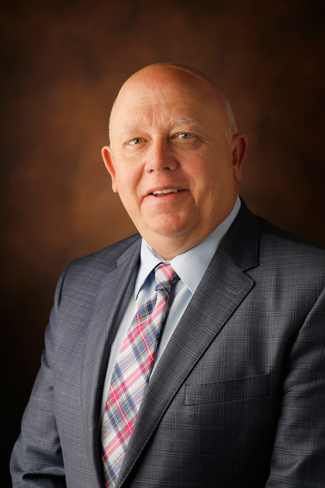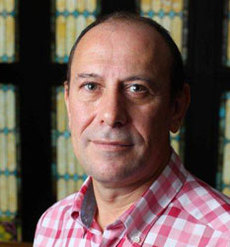
On Feb. 16, the Vanderbilt College of Arts and Science recognized more than 50 faculty with the COVID-19 Innovative Teaching Awards. The awards celebrated faculty who responded to the unprecedented challenges of COVID-19 by going above and beyond in adapting their coursework and teaching during the fall 2020 semester.
Faculty were nominated by students and their peers for creative teaching—including using multiple technologies, teaching on timely and topical issues, implementing innovative teaching in special contexts, and ultimately keeping students engaged during the pandemic.
“The Arts and Science faculty had to adjust their teaching in rapid and dramatic ways last spring and again this past fall, and they responded immediately and effectively,” said John Geer, Ginny and Conner Searcy Dean of the College of Arts and Science. “I am grateful for their dedication and commitment, which ensured that our students continued to receive an unparalleled Vanderbilt education—even in the face of a global pandemic.”
Faculty recognized for creative use of multiple technologies in online instruction:
- Divya Chaudhry, senior lecturer in Asian studies
- Lynn Enterline, Nancy Perot Chair and professor of English
- Rebecca Epstein-Levi, Mellon Assistant Professor of Jewish Studies and Gender and Sexuality Studies
- Pengfei Li, lecturer in Asian studies
- Elliott McCarter, senior lecturer in Asian studies
- Kristen Navarro, senior lecturer in gender and sexuality studies
- Carolina Palacios, senior lecturer in Spanish
- Mark Schoenfield, professor of English
- Heeryoon Shin, Mellon Assistant Professor of History of Art and Architecture
- Qing Wei, lecturer in Asian studies
“From flipped classrooms to technologies such as Perusall, YouTube, Twitter, Instagram, podcasts, virtual field trips and museum tours, not to mention Zoom and Brightspace, these colleagues went above and beyond to make online learning dynamic and engaging,” said Bonnie Dow, dean of academic affairs for the College of Arts and Science.
Faculty recognized for supportive mentoring of faculty colleagues regarding online teaching:
- Phil Ackerman-Lieberman, associate professor of Jewish studies and classical and Mediterranean studies
- Anna Castillo, Mellon Assistant Professor of Spanish and Portuguese
- Sheri Shaneyfelt, principal senior lecturer in history of art and architecture

“Since the onset of the pandemic, Professor Castillo … has been a brilliant inspiration, an illuminating guide, an indefatigable and generous helper and a true role model for all of us concerning the daunting task of adapting our teaching to the demands of the pedagogical reality imposed by the spread of COVID-19,” said Andres Zamora, chair of the Department of Spanish and Portuguese and professor of Spanish, in his nomination of Castillo.
Faculty recognized for creating safe, productive and engaging in-person learning environments:
- Lori Catanzaro, senior lecturer in Spanish and Portuguese
- Raheleh Filsoofi, assistant professor of art
- Leor Halevi, professor of history
- Shaul Kelner, associate professor of sociology and Jewish studies
- Elizabeth Meadows, senior lecturer in English and associate director of the Robert Penn Warren Center for the Humanities
- Vesna Pavlovic, associate professor of art
- Steve Wernke, associate professor of anthropology
- Matthew Worsnick, assistant professor of the practice of history of art and architecture
We debated and discussed ideas, and students were not only able to form a bond with Professor Kelner, but with each other as well.
“I was disheartened heading into my first semester here at Vanderbilt. I knew I was getting a different experience … Professor Kelner made the class feel like the virus never existed (other than COVID safety protocols, of course). We debated and discussed ideas, and students were not only able to form a bond with Professor Kelner, but with each other as well … Overall, the class felt ‘normal’—I never thought I would be so grateful for normality,” said a student in their nomination of Kelner.
Faculty recognized for giving special attention to student inclusivity, engagement and well-being:
- Gabriel Briggs, senior lecturer in English
- Amy Cooter, senior lecturer in sociology
- Nozomi Imai, lecturer in Asian studies
- Shellie Richards, lecturer in communication of science and technology
- Tasha Rijke-Epstein, assistant professor of history
- Mariano Sana, associate professor of sociology
- Elisabeth Sandberg, senior lecturer in psychology
- Adriane Seiffert, senior lecturer in psychology
- Savanna Starko, senior lecturer in physics and astronomy
- Keith Weghorst, assistant professor of political science
[Dr. Starko] demonstrated the utmost respect and compassion toward her students in this difficult time, approaching every interaction with profound empathy.
“Dr. Starko hosted three office hours a week to help students with problem sets. In addition, she hosted weekly ‘coffee chats’ as a way for students to connect with each other. Finally, on Fridays, each week featured a guest speaker on a topic relevant to physics, biological and health sciences, mental health and wellness,” said a student in their nomination of Savanna Starko. “[Dr. Starko] demonstrated the utmost respect and compassion toward her students in this difficult time, approaching every interaction with profound empathy.”
Faculty recognized for teaching courses focused on timely and topical pandemic-related issues:
- Beth Conklin, associate professor of anthropology
- Gilbert Gonzales, assistant professor of medicine, health and society
- T.S. Harvey, associate professor of anthropology
- Eunji Kim, assistant professor of political science
- Ashleigh Maxcey, senior lecturer in psychology
- Tara McKay, assistant professor of medicine, health and society
- Lars Plate, assistant professor of chemistry and biological sciences
- Holly Tucker, professor of French, Mellon Foundation Chair in the Humanities and director of the Robert Penn Warren Center for the Humanities
I believe that [Professor Gonzales’] class, more than any other class at Vanderbilt, gave me practical information that is critical to my future.
“I feel strongly that college is a time to think critically and become better actors in our communities, whether that is the campus environment or the global community. Professor Gonzales effectively taught us practical information about the American health care system and opened up class spaces to have meaningful conversations about breaking news and relevant developments in the world, from vaccines to elections,” said a student in their nomination of Gilbert Gonzales. “I believe that this class, more than any other class at Vanderbilt, gave me practical information that is critical to my future.”
Faculty recognized for heroic instruction of every language course in the Korean language curriculum:
- Seok Bae Jang, senior lecturer in Korean language and Asian studies
[Seok Bae Jang] taught every single one of the courses himself—four to five hours of Zoom teaching five days per week.
When it became clear that a newly hired full-time Korean language instructor would not be able to get to Nashville from Seoul for the fall semester, the only remaining full-time faculty member in Korean, Seok Bae Jang, was determined to not cancel any courses and disadvantage the students in the college’s rapidly growing Korean program. Instead, he taught every single one of the courses himself—four to five hours of Zoom teaching five days per week. This incredible feat was recognized by multiple students.
Faculty recognized for bringing the creative and performing arts to life when live performance wasn’t possible:
- Alex Sargent Capps, principal senior lecturer in theatre
- Krista Knight, writer-in-residence in cinema and media arts and theatre
- Kristyl Tift, assistant professor of theatre
- John Warren, lecturer in art
I believe that the making and sharing of art can have healing properties, and our students need healing right now.
“The truth of the matter is that what we teach, beyond the material, is who we are and how we make sense of the world, including those parts of it we call the curriculum. I believe that the making and sharing of art can have healing properties, and our students need healing right now,” said John Warren of the attitude he and his colleagues brought to virtual classrooms. “I think the most innovative thing I did was to make the digital classroom feel as human as possible.”
Faculty recognized for developing innovative approaches to teaching science:
- Kenneth Catania, Stevenson Chair and professor of biological sciences
- Lily Claiborne, principal senior lecturer in Earth and environmental sciences
- Thomas Clements, senior lecturer in biological sciences
- Katherine Friedman, associate professor of biological sciences
- Neil Kelley, assistant professor in Earth and environmental sciences
- John McLean, Stevenson Professor and chair of the Department of Chemistry
- Dan Morgan, principal senior lecturer in Earth and environmental sciences and associate dean of the College of Arts and Science
- James Pask, senior lecturer in biological sciences
They brought impressive creativity and commitment to this task, especially about how to make their large intro courses—and the labs that accompany them—work for our students.
“When the pandemic began, the college shut down its science labs. They slowly reopened over the summer, when I began to have meetings with science faculty about how to teach science courses and science labs in the fall within COVID constraints,” said Bonnie Dow, dean of academic affairs for the College of Arts and Science. “They brought impressive creativity and commitment to this task, especially about how to make their large intro courses—and the labs that accompany them—work for our students.”